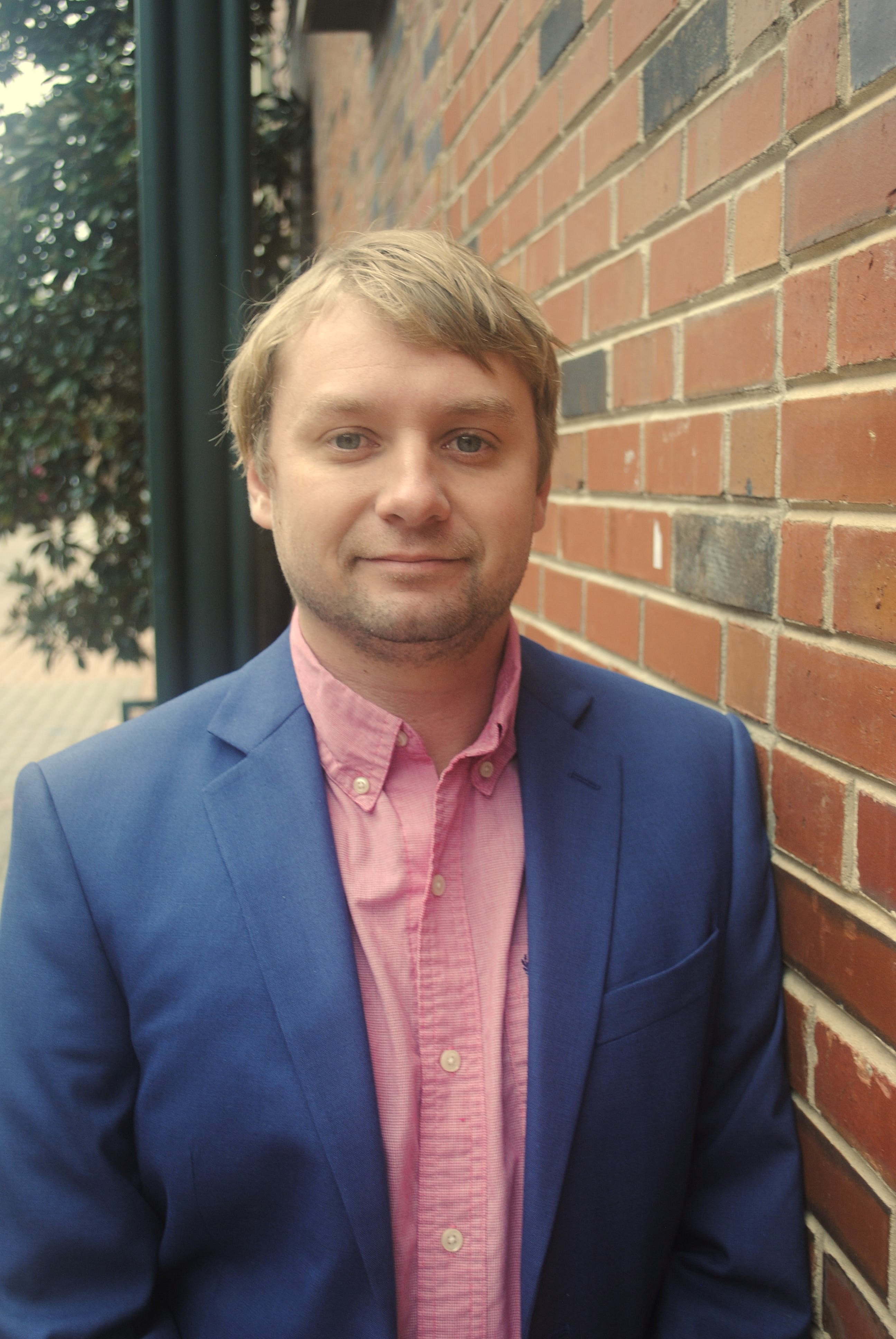2,000 Miles Apart, Connected Through Learning

Thomas Rogers
Elisabeth Curtis
January 3, 2025
When Thomas Rogers defended his Master of Arts in History thesis at Idaho State University (ISU), it marked the culmination of a unique academic journey—one conducted entirely online from his home in South Carolina.
His story is a testament to the global reach of ISU’s programs and the resilience of a scholar deeply passionate about history.
From Hospitality to History
Rogers' academic path was far from conventional. A graduate of The Citadel in Charleston with a double major in History and French, he first discovered his fascination with Islamic history during an early course on the subject. However, practical considerations initially led him down a different route.
"I got a master's degree in hospitality and tourism and worked in that field until COVID-19 effectively shut it down," he explained. During this time, his interest in history remained steadfast. In 2020 he reached out to Dr. Heern at ISU seeking to reignite his passion for studying Shiite history. “Dr. Heern and his specialty was what drew me to ISU.”
After a brief return to the hotel industry, Rogers realized his true calling lay elsewhere. With support from ISU faculty, he committed to pursuing his master's degree, navigating multiple jobs and assistantships along the way.
Exploring His True Passion
Under the mentorship of Dr. Zack Heern, Rogers delved deeply into Islamic history, ultimately focusing his thesis on how Islamic sectarianism influenced British imperial policy in the 1930s.
"I started broadly, exploring Islam outside the Middle East, but eventually narrowed my scope to sectarianism and its geopolitical impacts," he shared. His research looks at often-misunderstood aspects of Iraq's history and highlights the British emphasis on ethnic identity in shaping their policies.
Rogers' work was supported by extensive digital resources, which was one of the benefits for him completing an online program. "Everything I needed was available online through databases," he said. "It was both fun and stressful at times, but it allowed me to gain a nuanced understanding of governance, authority, and religious identity in the 20th-century Middle East."
Challenges and Success in an Online Program
Rogers had returned to South Carolina to help with family, so he was grateful to have the option of an online program, but adapting to online learning presented its share of challenges.
"I can't stand looking at a screen all the time," Rogers admitted. Yet, this experience taught him valuable lessons in flexibility and perseverance.
"I learned a lot about myself, about how much I can adapt and push myself to achieve something meaningful—not just for myself, but for ISU and the broader academic community," he said.
Rogers also appreciated what ISU faculty brought to the virtual learning environment. He says, "We had intellectually challenging and fulfilling conversations in an open and comfortable environment that the professors and program provided.”
Memorable Moments and Future Goals
Among Rogers' favorite experiences was his teaching assistantship for an introductory European history course. "Seeing young students just out of high school produce excellent work and engage deeply with the material was incredibly rewarding," he said. “It blew me away.”
He also says that class discussions were intellectually fulfilling. He enjoyed Interacting with students in his courses from across many different disciplines. “I really enjoyed the work and assignments,” he says. “I enjoyed the challenge. I will never regret this experience at all.”
As he looks to the future, Rogers plans to pursue a doctoral degree and career in government or non-profit work, possibly focusing on religious heritage site preservation and its intersection with cultural identity and sectarianism. His current role at Drayton Hall, a historic plantation in Charleston, has further fueled his interest in heritage management and global preservation efforts.
"My goal is to contribute to the understanding and preservation of religious and cultural heritage sites, particularly in regions impacted by violence and oppression," he explained. "This is something I discovered through my research at ISU—how deeply religion and identity resonate with people across the world."
Gratitude and Reflection
Rogers was impressed with how the program gave him a global experience, both in connecting him with classmates and faculty from 2000 miles away, and reaching across different parts of the country and including international students as well.
He credits his success to the support of ISU’s faculty, staff, and students. "I want to emphasize how fortunate I was to find this program," he said. "From financial aid to scheduling, everything about ISU and the history program has been top-notch. I take great pride in what we've accomplished together."
